Founders include celebrity chef Andrew Zimmern and Imani Black of Minorities in Aquaculture
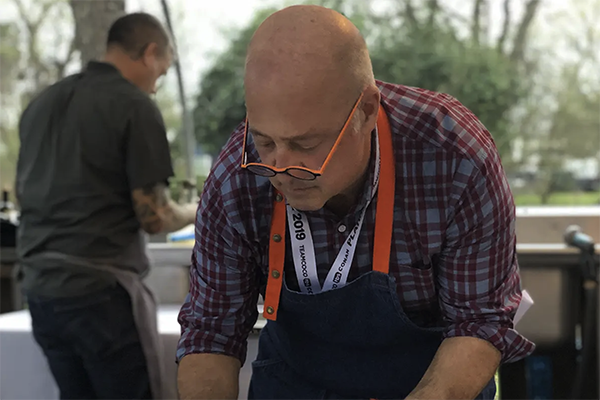
A group of award-winning U.S. chefs has teamed up with environmental groups and other business leaders across the country to form the Coalition for Sustainable Aquaculture to facilitate “grow it here, do it right” policies for the industry’s growth.
CSA is advocating for a “strong regulatory framework to ensure offshore aquaculture is safe, sustainable, equitable and science-based” as well as opportunities for historically disadvantaged and excluded communities.”
The group has enlisted more than 20 leading chefs from around the country, leading ocean and seafood-focused organizations like Environmental Defense Fund (EDF) and a range of other groups and companies that work toward gender equality, responsible resource use and best practices for aquaculture. Founding members include Minorities in Aquaculture, The Marine Mammal Center, Seafood and Gender Equality (SAGE), Lowcountry Oyster Co., Blue Dot Sea Farms, Aqua-Spark, Monterey Bay Seaweeds, Neptune Sustainable Ocean Snacks and Postelsia.
“Americans want more sustainable seafood on their plates. That means that one of our primary solutions is to grow it here and do it right,” said Andrew Zimmern, an award-winning chef and founding CSA member. “I know first-hand that when it comes to aquaculture, consumers increasingly want to know that the fish on their plate is grown sustainably and with rigorous standards, and we’re coming together to forge a movement to make it possible.”
“By committing to responsible, homegrown aquaculture that includes offshore farming, we can build a sustainable supply chain for everyone, all while growing equitable and inclusive jobs. That means more Americans can have sustainably sourced, nutritious seafood in their local grocery stores, restaurants, farmers’ markets and in their homes,” said founding member Imani Black, CEO and founder of Minorities in Aquaculture.
CSA says the United States, using the nation’s longstanding Magnuson-Stevens Fishery Management and Conservation Act as an example, can lead again with a “science-backed aquaculture industry founded in sustainable, equitable practices that creates jobs and contributes to food security alongside well-managed traditional fisheries.”
Follow the Advocate on Twitter @GSA_Advocate
Now that you've reached the end of the article ...
… please consider supporting GSA’s mission to advance responsible seafood practices through education, advocacy and third-party assurances. The Advocate aims to document the evolution of responsible seafood practices and share the expansive knowledge of our vast network of contributors.
By becoming a Global Seafood Alliance member, you’re ensuring that all of the pre-competitive work we do through member benefits, resources and events can continue. Individual membership costs just $50 a year.
Not a GSA member? Join us.
Author
Tagged With
Related Posts
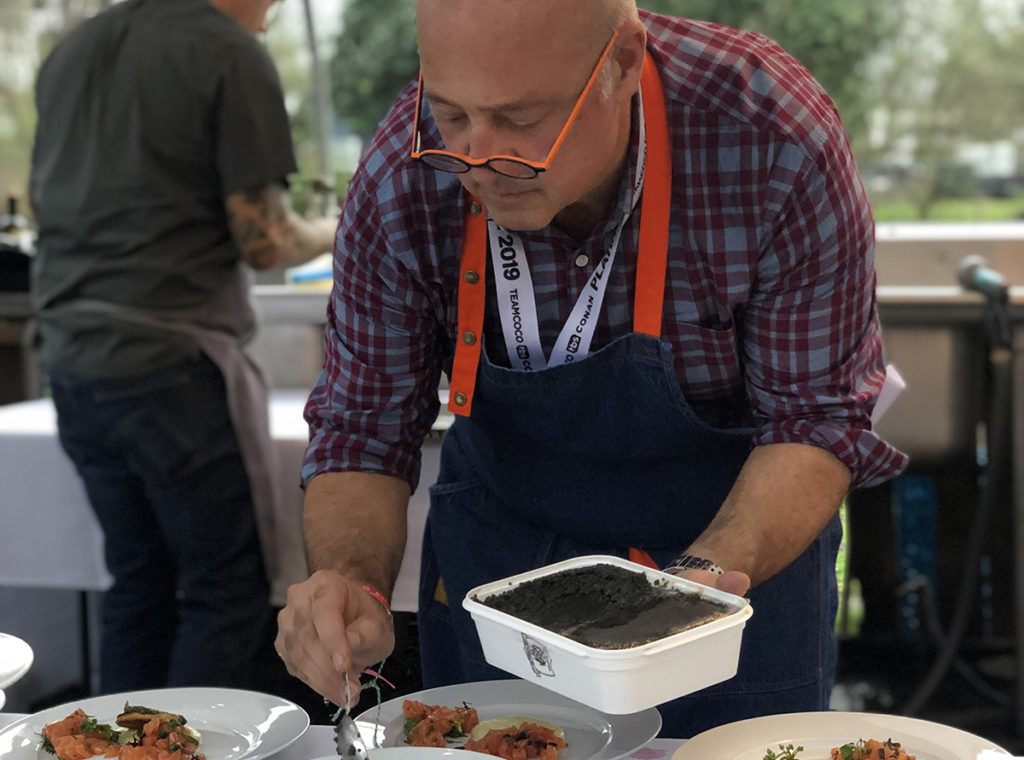
Intelligence
Bizarre Foods star Andrew Zimmern: Aquaculture ‘helps save our planet’
When the world-traveling chef, author and TV star Andrew Zimmern invites you to Austin, Texas, to join his “future of food” panel about aquaculture – at an event the locals simply call “South-by” – there is only one acceptable answer.
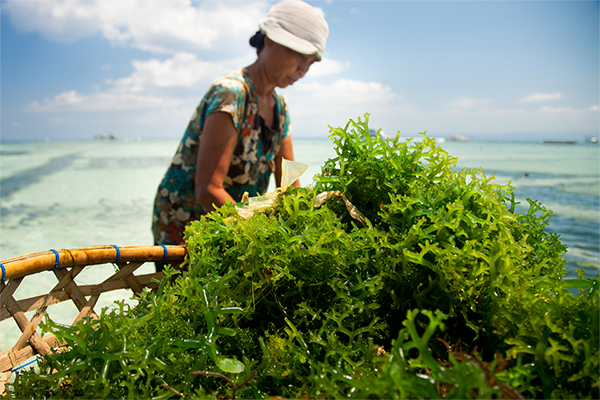
Intelligence
A seat at the table: Fed By Blue team says aquaculture needs a stronger voice
In Fed By Blue, star power and a women-led production team aim to prop up farmed seafood with a focus on the message: Blue foods are the future.
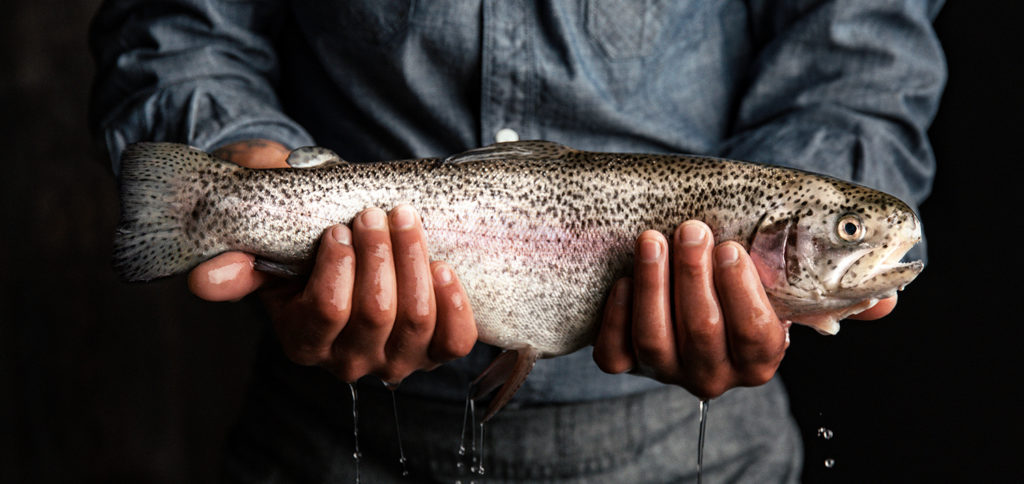
Intelligence
From the Hollywood Hills to the raceways of Riverence
Six-year-old Riverence Holdings, founded by a cattle rancher and a Hollywood TV producer, is now the largest land-based trout producer in the Americas.
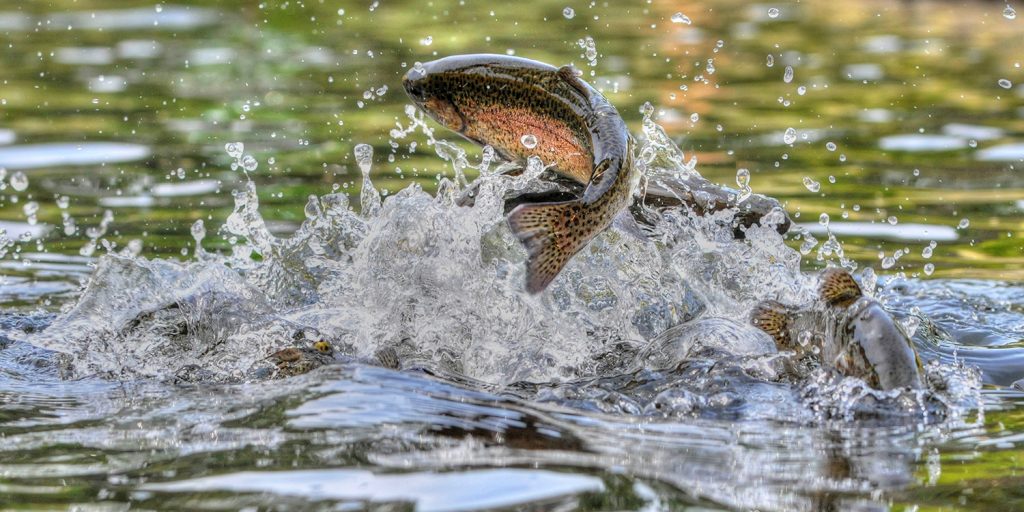
Intelligence
Trout might be the fish America needs right now
Boasting a bright red-orange and oil-rich fillet like salmon, trout can be grown to market size faster and are often less expensive.



